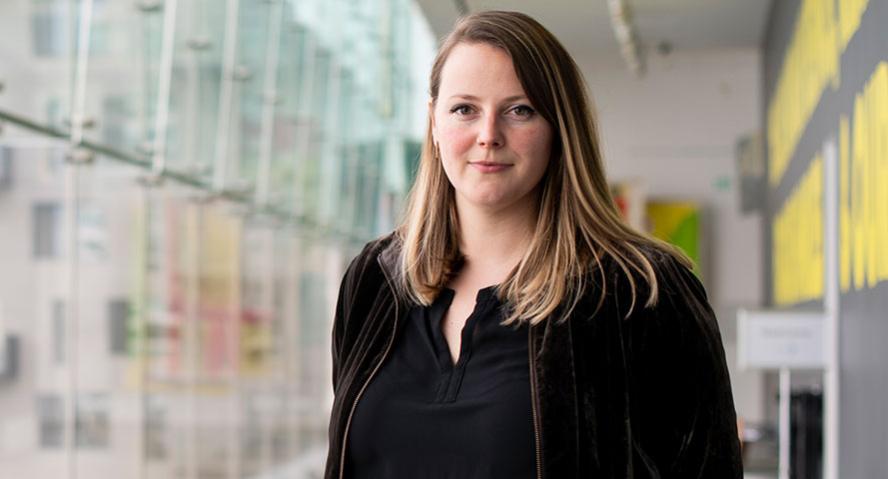From Tufts to Museum Educator

She was drawn to the Tufts program because of its flexibility in allowing her to work full-time while building on particular areas of interest in her professional skillset as a part-time student.
Why did you choose this part-time program at Tufts?
I was looking for a program I could enroll in that would allow me to continue to work full time. I had already heard great things about the Tufts program from current and former colleagues, so after taking a few years to work in the field, I decided I was ready to be back in an academic setting.
What was it about the Tufts Museum Education program that made it stand out to you?
I was interested in this program because I knew I could complete it while working full time. I was also looking to broaden my scope a little. Since I double-majored in studio art and art history with a focus in contemporary art in undergrad, I was looking forward to the program taking me out of my comfort zone to help me think a little more holistically about museums and museum education. Additionally, I appreciated that there is a level of freedom within the program; though you have certain requirements to fulfill, there are multiple options to choose from, which really allows you to shape your experience in the program.
What is your focus within the program?
I moved into my current role very quickly, without much time to grow through more entry-level positions, so I’ve been focusing on courses that fill gaps in my personal or professional experience. In general, I am interested in accessibility and interpretation, so while I don’t have to declare an official focus in the program, I am always thinking about how these issues are relevant in the courses I am taking.
What is your current job?
I am the visitor experience manager at the Institute of Contemporary Art, Boston, which is a role in the museum’s education department. I manage our gallery educators, front line exhibition staff who have interpretation, customer service, and safeguarding responsibilities. Much of my work is concerned with the gallery experience of our everyday visitor, which means that I work collaboratively with many areas of the museum, from exhibitions to programs to accessibility.
How is the Museum Education program helping you in your current professional role?
One of the things I’ve enjoyed the most about the program is meeting and working with classmates who come to the field with different experiences than my own. I was initially a little nervous that completing this master’s degree while working full time would be “too much museums,” but having colleagues in the program with such unique knowledge and experience made it a surprise break from my work routine. I’ve appreciated the time to slow down and dive into topics that I spend time on at work, but don’t have the time to dedicate to learning more about the role that they play in museums, like digital media and evaluation, for example.
How do you feel the program is helping you advance your future professional goals?
As far as advancing my future professional goals, I’ve found that a lot of the courses are structured around practical work that takes place in museums, so the assignments, discussions, and projects are relevant and worthwhile to future museum professionals (as well as current ones, like myself).
I have a little more time left at Tufts, but I already feel that I am a more versatile and conscious museum professional with the help of this program and the great classmates, professors, and network of folks associated with the program.